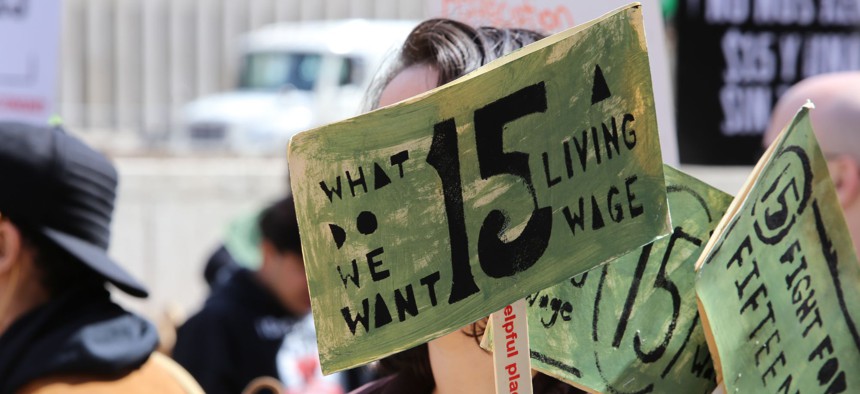Minimum-Wage Increases: Another Big Winner on Election Night

Shutterstock

Connecting state and local government leaders
At least 2 million Americans will get raises after ballot measures passed in a handful of states.
In spite of rhetoric that heralded a massive electoral rebuke of progressive valueson Tuesday, labor-friendly policies also had a strong night at the polls. Four states—Arizona, Colorado, Maine, and Washington—passed ballot measures that will raise the minimum wage significantly by the year 2020.
Hourly workers in Arizona, Colorado, and Maine will see their pay floors rise to $12 an hour—all gains of more than $3.75 an hour—while Washington’s minimum wage will rise to $13.50 by 2020, an increase of $4.03 an hour. Elsewhere, a referendum that would lower wages for workers under the age of 18 was roundly defeated in South Dakota.
And so, as political leadership has been passed back and forth between parties over the years, minimum-wage hikes have become a reliably popular policy. “During the past 20 years they've appeared on state ballots 20 times and failed only twice—in Missouri and Montana, both in 1996, a mere three months after Congress voted to boost the hourly minimum from $4.25 to $5.15,” Politico noted in its morning newsletter about labor. It added that, in addition to a handful of cities, four red states also raised their minimum wage in 2014.
In addition to these hikes, Arizona, which broke easily for Donald Trump, and Washington, which voted overwhelmingly for Hillary Clinton, also passed mandated sick-leave measures, a boon for the nearly 45 percent of the American workforce without such paid protections.
One arena in which labor-backed ballot tests did not overwhelmingly succeed was in so-called “right-to-work” rules. In Virginia, where workers in unionized workplaces are not obligated to pay union dues, voters defeated a measure that would make that a feature of the state constitution. To the chagrin of labor unions, a similar proposal in Alabama succeeded. Meanwhile, in South Dakota, a measure that would have strengthened unions by allowing them to collect dues from non-members was overwhelmingly defeated.
Adam Chandler is a senior associate editor at The Atlantic, where this article was originally published.

NEXT STORY: 2016 City Hall Election Results




